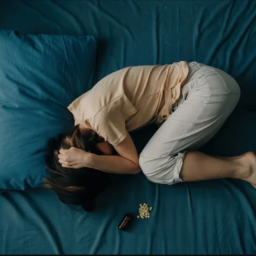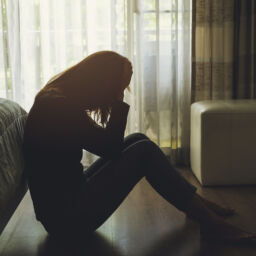
The feeling of loss or grief is an intimate emotion to have. Often, people grieve the loss of people in their lives, immediate family members, and loved ones. What happens when one finds themselves grieving for someone who abused them?
It’s a complicated subject to tackle, and it can make the abused person feel untethered from the progress they have made. How can the loss of someone who mistreated you make you feel so sad? This mixture of emotions is okay, and it’s pertinent to face it head-on. There is no sweeping it under the rug, and these feelings can blister and pop back up in the abused person’s life.
Psychologically speaking, there are many reasons for feelings of grief when an abuser is out of your life or passes away. Some of which include the need to grieve the idea of a life that the abused may have had or hoped for or a lack of closure.
The abused often hold on tight to the illusion of the life they had in mind. The life in which their abuser would change, or that the abuse would have never happened at all. These dreams are hard to let go of, especially when you only expected kindness and love from the abuser and were met with the opposite. This can be seen in romantic partners and parents. Child Abuse is an issue that plagues many, and the death or loss of an abusive parent is a grief that many people struggle with.
In cases of Child Abuse, abusive/narcissistic parents are often placed on an unattainable pedestal. Grieving the relationship that an abused child hoped would happen is a natural process, but that doesn’t mean that the grief hurts any less.
It’s also completely natural to see the relationship in terms of the good that the abuser may have done. One can cling to these memories and often use them to dismiss the bad that has happened. When abused people remove themselves from abusive relationships, or when their abuser moves on or passes away, they can long for those good times. With this comes a feeling of shame, especially when discussing these feelings with friends or family who were aware of the abuse. Some loved ones won’t fully understand how the abused person can still have good memories that aren’t tainted by the bad. When dealing with someone who is grieving their abuser, try to stay away from phrases like, “You’re better off without them.” This could make them feel like they cannot verbalize their emotions with someone they trust.
On the other side of the spectrum, maybe it isn’t the good times causing the emotions, but rather the bad. The anger they feel towards their abuser can feel like an anchoring point. It allows them to see all the bad that happened to them, but they can also be stuck in that phase with intense anger. Without moving on from the anger, it can be hard to truly heal. Wounds from the past will only fester if not dealt with properly, and this is true with all aspects of the emotional spectrum when dealing with abuse. Anger also comes from the inability to confront the abuser. Feeling stronger in themselves yet being unable to ask serious questions or get answers to why the abuser did these things is an intense form of grief.
Recognizing these emotions as grief is the first step towards recovery and down a road to fulfilling relationships. At Abuse Refuge Org, there are many people happy to help with this grief. Beginning the road to recovery begins with you, and ARO is eager to be the helping hand to get you started. If you or a loved one is ready — or even if you don’t think you’re ready — reach out.
At ARO, the start of recovery is with Norm Therapy, which helps victims get to the point of preparedness for more traditional therapies. This is done by examining the forms of abuse that the victim has been through. To begin this journey, visit GoARO.org, and please consider donating to help us provide these services to abuse survivors.
















